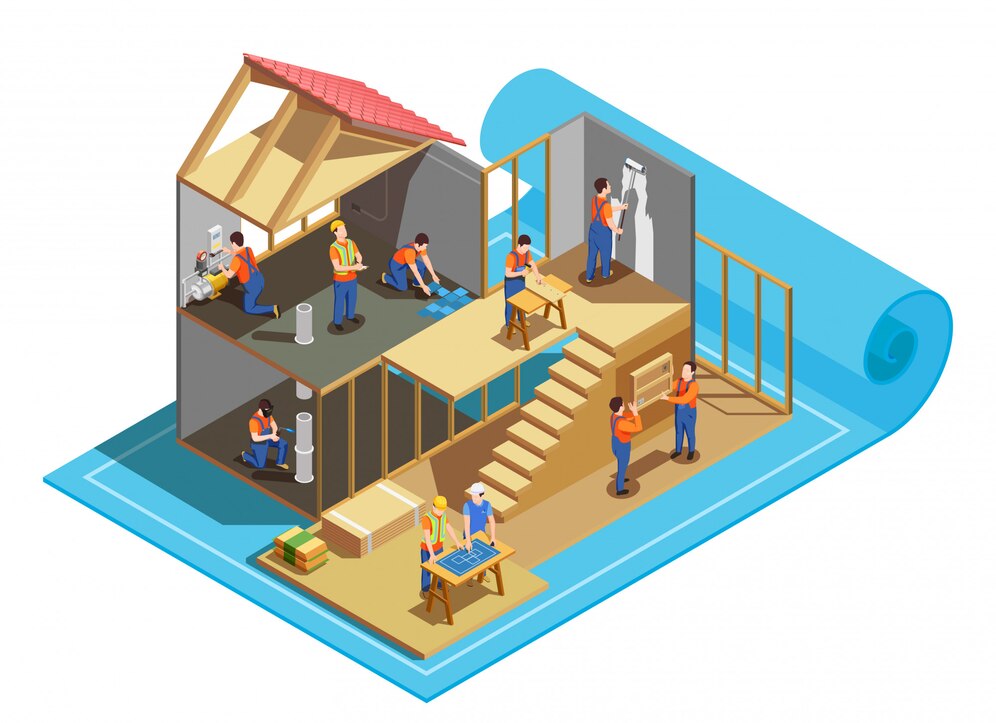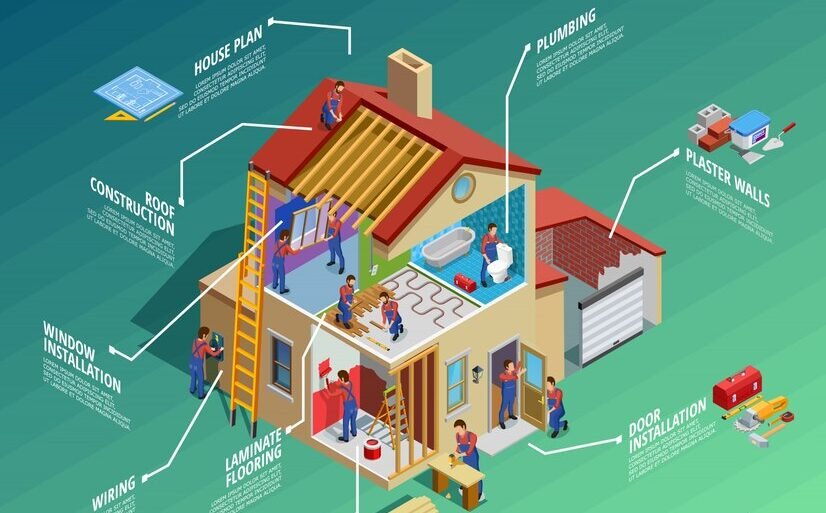Advice on Budgeting for Home Improvement
Revitalizing your living space through home improvement projects can infuse a fresh lease of life, but these endeavors frequently carry a substantial cost. Whether you’re dreaming of a kitchen makeover or a bathroom renovation, budgeting is the key to turning your vision into reality. In this article, you’ll explore practical advice on budgeting, like home improvement loans for home improvement, aiding you in making well-informed choices regarding the financing of your upcoming project.
Tips for Home Improvement in Budget

Assessing Your Needs and Wants
Before you embark on your journey, take a moment to assess your needs and wants. Distinguish between essential repairs and desired upgrades. Understanding your priorities will guide your budgeting process, ensuring you allocate funds to the areas that matter most to you.
Start by creating a list of all the improvements you envision. Categorize them into must-haves and nice-to-haves. This exercise will not only clarify your goals but also streamline your budgeting efforts.
Researching Costs
Knowledge is power when it comes to budgeting for home improvement. Research the costs associated with your desired upgrades. This includes materials, labor, permits, and any unexpected expenses that may arise during the project.
Obtain quotes from multiple contractors to guarantee a practical assessment of the associated expenses. Consider potential price fluctuations and market trends, as they can influence the overall cost of your project.
Establishing a Realistic Budget
Once you have a clear understanding of the costs, it’s time to establish a realistic budget. Ascertain the amount you can comfortably allocate to your improvement project without jeopardizing your financial stability. Consider your income, existing expenses, and any savings you can contribute to the project.
Remember, a well-thought-out budget not only covers the project costs but also leaves room for unforeseen expenses. It’s wise to include a contingency fund of around 10% of your total budget to account for any surprises that may pop up along the way.
Exploring Financing Options
If your savings fall short of covering the entire project cost, exploring financing options is a sensible next step. Housing loans are designed for precisely this purpose, providing you with the funds needed to enhance your living space.
Look for loans with home loan EMI, low interest rates, and flexible repayment options.
Prior to committing to a loan, meticulously examine the terms and conditions to ensure they are in harmony with your budget and financial objectives. Before opting for finance options with EMI options, its important to research online home loan calculators to make prominent decisions.
Maximising Cost Efficiency
Budgeting for house improvement isn’t just about limiting expenses; it’s also about maximising cost efficiency. Look for ways to cut costs without compromising on quality. Consider whether certain aspects of the project can be tackled through DIY efforts or if there are more affordable alternatives for materials without sacrificing durability and aesthetics.
Remember that small adjustments, such as choosing energy-efficient appliances or opting for cost-effective finishes, can add up to significant savings without compromising the overall look and feel of your house.
Monitoring Expenses Throughout the Project

Once your home improvement project is underway, diligent monitoring of expenses is crucial. Keep a close eye on spending to ensure it aligns with your budget. Regularly communicate with contractors to address any potential deviations from the initial estimates.
Maintaining open communication and staying proactive in managing costs will help prevent budget overruns and allow for adjustments if necessary. Regular check-ins with your project team can also ensure that any unforeseen issues are addressed promptly, preventing them from snowballing into costly problems.
Conclusion
To conclude, the process of budgeting for home improvement demands thoughtful consideration of your requirements, comprehensive research, and strategic planning. By assessing your priorities, researching costs, and establishing a realistic budget, you set the foundation for a successful home improvement journey.
Exploring financing options like home improvement loan, maximizing cost efficiency, and monitoring expenses throughout the project further contribute to a smooth and financially sound experience. Remember, the goal is not just to enhance your living space but to do so in a way that aligns with your financial well-being. With thoughtful budgeting, you can turn your home improvement dreams into a reality without breaking the bank.

















